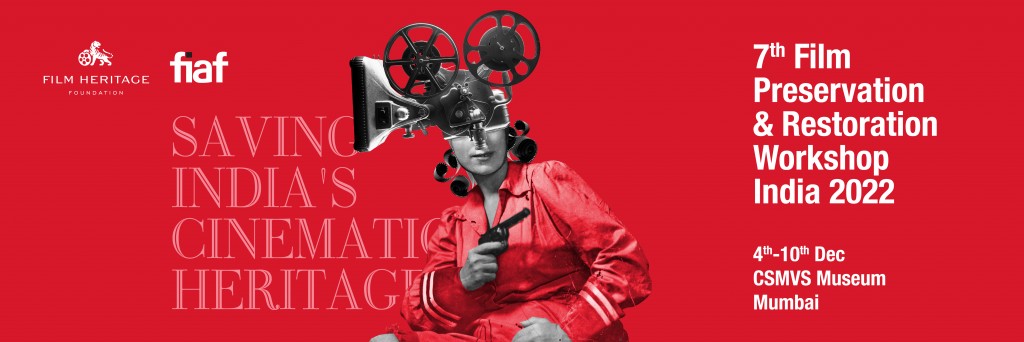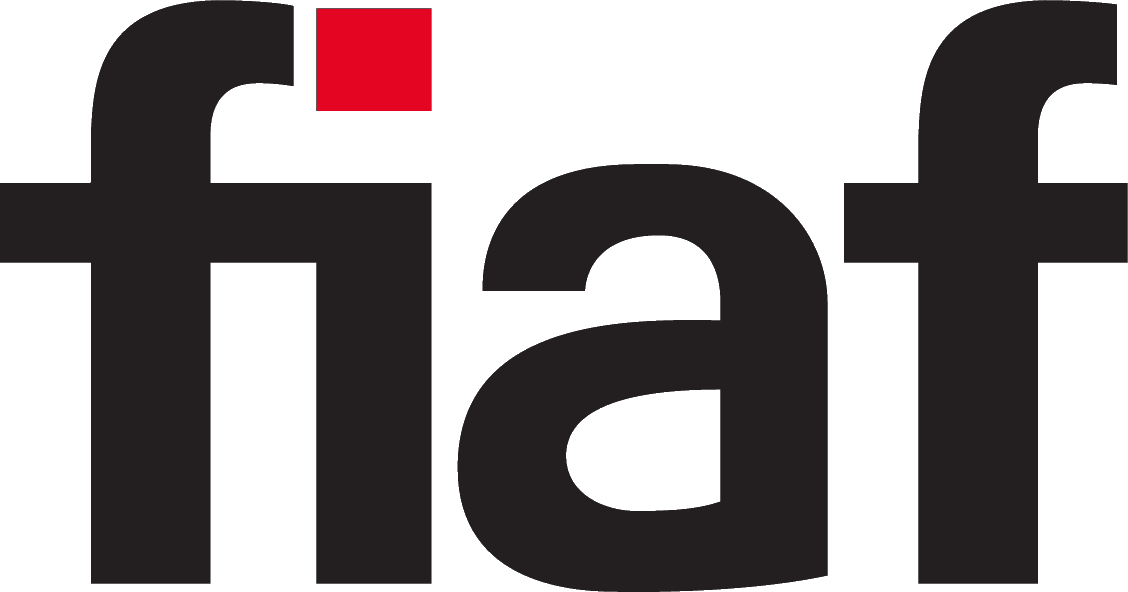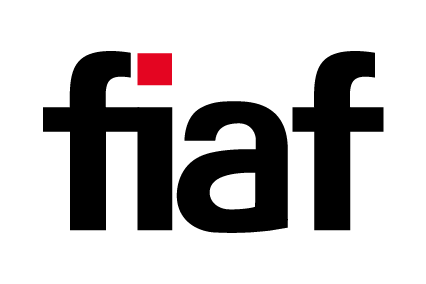
Film Heritage Foundation and FIAF are pleased to announce the seventh Film Preservation & Restoration Workshop India 2022 (FPRWI 2022) to be held in Mumbai from December 4 – 10, 2022 at the Chhatrapati Shivaji Maharaj Vastu Sangrahalaya (CSMVS Museum). Film Heritage Foundation (FHF) has earlier conducted workshops in Mumbai in 2015, in Pune in 2016, in Chennai in 2017, in Kolkata in 2018 and in Hyderabad in 2019.
After a two-year gap as a result of the pandemic, our flagship training programme – the Film Preservation & Restoration Workshop India will be back this year with an advanced course with in-person hands-on training and a superb international faculty.
A Unique Training Initiative
FPRWI 2022 is an initiative of Film Heritage Foundation and FIAF, in association with The Film Foundation’s World Cinema Project.
Covering a wide spectrum of topics under the umbrella of film preservation, the workshop is considered the most comprehensive of its kind in the world and has become the model for FIAF’s international training programs.
The intensive week-long workshop, certified by FIAF, covers both lectures and practical classes in the best practices of the preservation and restoration of films, celluloid and digital, and film-related paper and photograph material and 3D objects. The course is taught by a faculty of international experts from leading institutions around the world. Classes will be followed by daily screenings of restored classics from around the world.
Goals of the Programme
The aim of FPRWI 2022 is to skill and train a resource of archivists to take on the monumental challenge of saving our film heritage.
Application Procedure
- Applications will be open from 12 October – 6 November 2022;
- Application forms can be downloaded here;
- The fully completed application form, along with supporting documents if any, must be sent to fprwi2022@gmail.com by the deadline.
- Applications are open to India, Sri Lanka, Nepal, Bangladesh, Bhutan and the Middle East;
- Scholarships available for local and international candidates.
Course Structure and Content
The course will comprise plenary lectures and four streams of specialization with group lectures and practical classes in each stream of specialization.
Plenary lectures are compulsory for all selected participants. Applicants will have to select their choice of specialization from the four streams mentioned below:
- Film
- Digitization, Sound and Digital Technology
- Documentation, management and access
- Paper, photograph and 3D Object Conservation
Selected participants will be assigned to their preferred streams, subject to availability, as there are a limited number of seats in each stream.
Lectures (Compulsory for all participants):
- Keynote
- Advocacy and collections development
- Archive preservation policies
- Restoration
Stream 1 – Film
- Film identification
- Small gauge films
- Film repair and stabilization
Stream 2 – Digitization, sound and digital technology
- Film selection and preparation for scanning
- Film scanning
- Post-scanning operations
- Soundtrack digitization
- Building a digitization workflow – technical infrastructure
- Digital literacy – management of data files
- Digital preservation principles and models
- Open source tools
- Online access
Stream 3 – Documentation, management and access
- Cataloguing
- Film technical documentation
- Preservation metadata and digital preservation
- Building a digitization workflow – management and staffing
- Access through screenings and creating a film programme/festival
Stream 4 – Paper, photograph and 3D Object Conservation
Faculty
- David Walsh – FIAF – Archive preservation policies and digitization
- Arike Oke – British Film Institute (BFI) – Acquisition policies and procedures and advocacy
- Davide Pozzi – L’Immagine Ritrovata – Purpose of film restoration, its ethics and practice
- Tiago Ganhão – Cinemateca Portuguesa – Film identification
- Dr. Clare Watson – Small gauge films – Media Archive for Central England
- Marianna de Sanctis – L’Immagine Ritrovata – Film repair and stabilization
- Maura Pischedda – L’Immagine Ritrovata – Film repair and stabilization
- Celine Pozzi – L’Immagine Ritrovata – Post-scanning operations
- Etienne Marchand – Institut National de L’Audiovisual – Digital infrastructure and open source tools
- Samantha Leroy – Fondation Jérôme Seydoux – Pathé – Access and film programming
- Adelheid Heftberger – Bundesarchiv – Cataloguing
- Elena Nepoti – British Film Institute (BFI) – Film technical documentation, preservation metadata and digital preservation
- Marina Ruiz-Molina – The Metropolitan Museum of Art – Paper conservation
- Rio Lopez – Academy Museum of Motion Pictures – 3 D object conservation
- Shivendra Singh Dungarpur – Film Heritage Foundation – Film preservation and restoration: The Indian scenario
For further details about the course, please visit the Film Heritage Foundation website.








